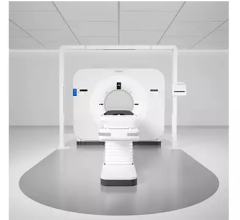May 22, 2012 -- Accuray Inc., a radiation oncology company, announced the signing of a multi-year master research and collaboration agreement with the German Cancer Research Center (Deutsches Krebsforschungszentrum, DKFZ), a luminary research institution located in Heidelberg, Germany. Accuray and DKFZ will collaborate on cutting-edge research in radiation oncology to advance treatment technology and provide health care professionals with the most effective tools for treating patients.
"Accuray was a logical choice for us in selecting a research partner given our rich history of collaboration surrounding the CyberKnife System and the company's leadership in image guidance and motion management," said Prof. Dr. Wolfgang Schlegel, head of the Department of Medical Physics, German Cancer Research Center. "We look forward to expanding our collaborations with Accuray through the signing of this master agreement."
Accuray will now be collaborating with two of the top luminary research institutions located in Heidelberg, DKFZ and the University of Heidelberg, per an agreement signed with the University of Heidelberg in March 2012. The three entities will now collaborate to advance the field of radiation oncology through research and clinical practice.
"These agreements with DKFZ and University of Heidelberg, focused on both the CyberKnife and TomoTherapy technologies, enable us to continue the important collaborative research in radiation oncology that has been underway for nearly a decade," said Euan S. Thomson, Ph.D., Accuray president and chief executive officer. "We look forward to our new partnership with DKFZ so that together we can create a future where the fear, pain and suffering of cancer are a thing of the past."
Since 2004, Accuray has entered into a number of project-specific research collaborations with DKFZ, including the co-development of the Iris Variable Aperture Collimator, an adjustable beam-shaping device developed to enable multiple changes in collimator size for the CyberKnife Robotic Radiosurgery System. The Iris Collimator enables more conformal treatments, less total dose (Monitor Units) to the patient and has allowed CyberKnife treatment times to be cut by as much as half.
The research collaboration surrounding TomoTherapy technology is longstanding as well, including exploration of new treatment options with helical TomoTherapy and associated journal publications about advanced use of helical TomoTherapy. The University of Heidelberg was the first TomoTherapy installation in Germany in 2006. A second TomoTherapy System was installed in 2010. Together these systems – a TomoHD and a TomoTherapy Hi-Art – treat approximately 700 patients per year, representing 70 percent of the approximately 1,000 patients treated by intensity modulated radiation therapy (IMRT) at the hospital each year, and 20 percent of the approximately 3,500 patients treated by their Radiation Oncology department each year.
For more information: www.dfks.de, www.accuray.com


 November 04, 2025
November 04, 2025 









